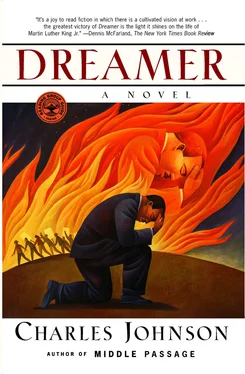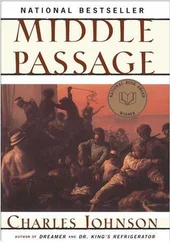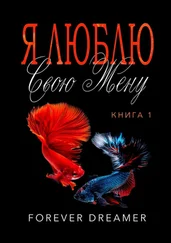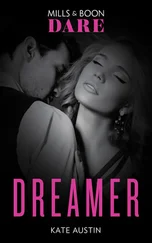He wondered if his faith was weak, if perhaps he was the worst of sinners and hypocrites. Others, he felt, suspected this too when at thirteen he shocked his teacher and classmates by rejecting the idea of Christ’s bodily resurrection from the sepulcher. He questioned, he doubted the Bible’s literal interpretation all through his teens, and wondered if the Negro church would ever be more Apollonian, as intellectually respectable as it was Dionysian and emotionally intense. The conflict between the intellect and emotional fervor, between the head (gnosis) and the heart (pistis), only deepened as he grew older. It held him back from following in his father’s footsteps. Medicine or law, he thought, might suit him better than churches that often seemed so otherworldly they were no earthly good at all. Preparing men for heaven was all well and good. But, he wondered, what of their conditions in the here and now? Then at Morehouse his liberal professors George D. Kelsey and Benjamin Mays gave him scholarly models for the kind of minister he one day hoped to be, filling his head with literature and philosophy, but even a jackleg preacher incapable of writing his own name had direct knowledge of the peace that passeth understanding he had only experienced in books.
During the Montgomery campaign, that ended. Threats on his life and those of Coretta and Yolanda, whom he saw too seldom at the height of the bus boycott, were nothing new. But one call shook him. It caught him, this newly minted Ph.D. whose future seemed so bright before the boycott’s leadership was thrust upon him, one weary night when he came home feeling euchred and afraid his family might be snatched away. His wife was waiting by the telephone. She handed it to him. “Listen, nigger,” the gin-soaked voice said, “we’ve taken all we want from you. Before next week you’ll be sorry you ever came to Montgomery. If you aren’t out of this town in three days we’re gonna blow your brains out and blow up your house.”
He knew he could not go on. The forces gathered against him were too many and great. Out there in the night someone was loading a 20-gauge pump-action shotgun to hunt him down; pouring gasoline into a glass jug to blow the limbs off his baby. They might be with the police. Or the military. Or Negroes displeased with all he’d stirred up. He could turn to no one for help. Not the Montgomery police, the politicians in Washington, or his parents. No one. Here, the roots of segregation ran deep, fueled by poverty. The seventy thousand whites on the average earned $1,730 yearly, the fifty thousand Negroes $970. Fewer than two thousand of the voting-age Negroes were registered, and humiliating obstacles were placed in their way. In Montgomery no Negroes held public office. The uneducated were apathetic, resigned to second-class status. The learned, especially if they belonged to any of the black civic groups, were factionalized and fought more often than they agreed.
For a long time that night he walked the floor, thinking of Revelations 22:15, his head tipped, both hands clenched into fists, his stomach turned to lead, searching for some way to escape his duties on the Montgomery Improvement Association without looking like a coward or a fool. Once his foot struck the leg of a table and brought a lamp and a photo of the baby bouncing onto the carpet. He swore under his breath and undid the mess he’d made. His directionless pacing brought him into the kitchen — he could do less damage there. In order to find something to do with his trembling hands, he put a fresh pot of coffee on the stove, silently watched it brew, then slumped down with his cup at the kitchen table. Coretta was rooms away, caring for the baby. He rubbed his face with both hands. He began to heave for breath, knowing if he failed in this fight against evil, surely the others who’d sacrificed so much would falter as well. His name would be struck from the Book of Life; the boycott would unravel and nothing would have been accomplished. They would be worse off than before. Demoralized, defeated. But in heaven’s name, what man could continue under this weight? He felt caged. Chained. In bondage and no longer belonging to himself. How had Boston University’s rising star come to this cul-de-sac? From childhood and the days his father talked politics at the dinner table, he’d dreamed of uplifting the Race, studied and prepared himself for this great task, wanting Great Sacrifices and trials of faith only to discover, too late, that nobody — or so he feared — gave a goddamn about his bourgeois sacrifices. If Yolanda and Coretta were killed, who would care? If there was no God, as so many thinkers claimed, he was a fool for endangering his family. Love was the ontological foundation of values. God was love. It followed that without Him there could be no basis for all his appeals to justice from the pulpit. No reason for anyone to care about the poor. No argument, in the end, to counter slavery itself, for in a materialistic, mechanistic world, a neutral universe onto which man projected his delusions of freedom and inherent worth, no value claims could be made at all — the cosmos would be irrational, not benign, indifferent to order and measure, a nightmare in the mind of some devil who could not roll himself awake. Thus far Montgomery had shown him that if God was not dead, He must certainly be deaf to His people’s suffering.
His fingers tightened round his empty cup until it shattered, obliterating inside and out. He took a deep breath. In resistance to oppression, he realized, there was fear of reprisals, in acquiescence the annihilation of self-worth, in fame the fear of humiliation, in strength the fear of enemies, in social stature the fear of slander, in health the fear of illness, in beauty the fear of old age, in scholarship the fear of disputants, in living … the certainty of death. His thoughts churned on, complicated, exotic. He felt too tired to move, but his mind, from surface to seabed, kept whirring widdershins.
At last he began to pray. To whom — or what — he could not say. Not asking for anything then. Not fighting, only confessing, “Lord, I have nothing left …” His gaze drifted to the fragments of the cup that was no longer a cup. But where had the “cup” gone? His fist opened, disappearing into his hand. Where had his “fist” gone? Then it came quietly, unbidden. He was traveling light again, for the long, lurid dream of multiplicity and separateness, the very belief in an “I” that suffered and strained to affect the world, dissolved, and for the first time he felt like a dreamer gently roused from sleep and forgetfulness. Awake, he saw he was not the doer. How could he have ever believed otherwise? That which he’d thought practiced virtue, surrendered to vice, held degrees, opinions and elaborated theories, and traveled toward a goal was spun from a spiderweb of words, no more real than the cantels of the erstwhile cup before him. Later, he would tell reporters and his congregation the room was rayed with shadowless light, and the Lord said unto him, Stand up for righteousness, stand up for the truth, and God will be at your side forever, but in fact the light came from him — not without — and the vox Dei he heard had been his own . Not I, he heard it whisper again in the suddenly transparent kitchen, but the Father within me doeth the works … I seek not my will but the will of the Father who sent me …
The stewardess’s voice came over the loudspeaker . “The captain has turned off the seat-belt sign. You are free to walk around the cabin if you wish.”
He struggled with the seat belt cutting into his belly and made a note to himself to push back a little earlier from banquet tables in the future. Finally the buckle sprang open, and he brought down the tray tucked into the seat in front of him. From his briefcase he removed the unfinished pages of his sermon and spread them before him, still thinking of his “Kitchen Conversion.” He’d not experienced anything quite like it thereafter. Now it was a faint memory, like first love, but he knew enough to trust the Lord to remove any obstacles — himself included — placed in the way of his ministry. Needless to say, that perplexed most of his aides, the purely political ones. Again and again they told him letting God handle little details was fine at Ebenezer but if he hoped to stay at the forefront of the Movement he damned well needed to organize his campaigns better Perhaps Chicago was proving them right. There were factors he had not foreseen. Down South the lives of whites and blacks were impeached to such a degree that bloodlines and surnames were shared. Like it or not, they were one people created in the cauldron of the Peculiar Institution. There was nothing uncommon about white babies nursing at the breasts of a black housekeeper. White politicians had a Negro (and most likely an Indian) hiding somewhere back in their family tree. If you went back to A.D. 700, everyone on earth had a common ancestor; no two persons, regardless of their race, could be less closely related than fiftieth cousins. Each man and woman on the planet today was a direct descendant of Jesus, Confucius, Gautama, Socrates, Tutankhamen, and Judas Iscariot. And, oh, interrelatedness went farther than even that. Each of the twenty thousand breaths we drew each day contained a quadrillion atoms breathed by the rest of humanity within the past week, and one’s next breath brimmed with more than a million atoms that once swirled within the chests of Anaximander, Muhammad, Lao Tzu, Vivekananda, and the Aborigines of Australia. Given that ground of overlapping lives one could hope that once the artificial, legal barriers to integration were removed, the children of masters and slaves might recognize that Race was an illusion, all children were literally — genetically — their own, and embrace one another as members of a single tribe.
Читать дальше












